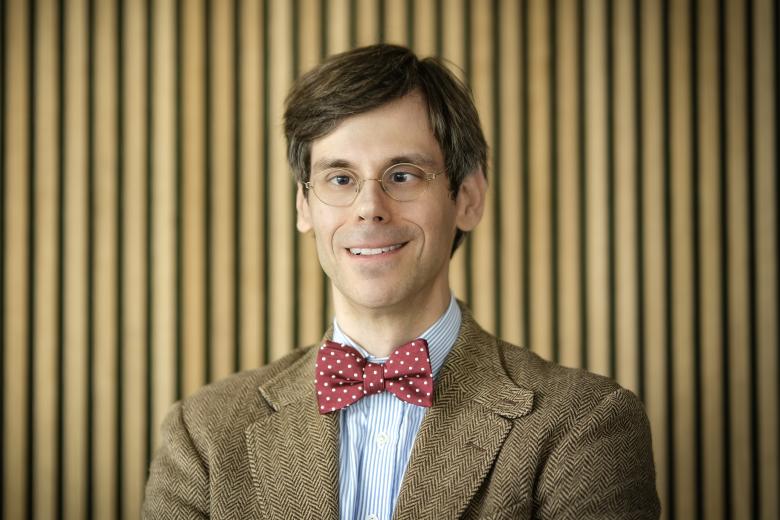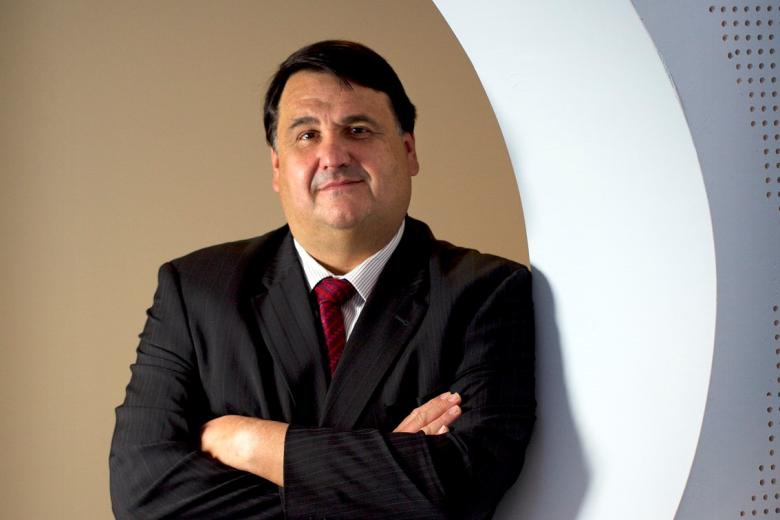The glass door
I really envy Luc, our rector, he is not only very smart and running much faster than I ever could, he also has a nice office with a glass frame that allows you to see if he is there, with whom he is in a meeting or what he is doing. This creates a sense of transparency that represents the openness of a university.
Visible and approachable
Universities must be open institutions, and their members should see what they are doing. If you are a member of the Executive Board, transparency is your way of life. Not only are your salary and expenses published, you also have to be visible and approachable by students, staff and colleagues. In many ways you have to interact with the organization in a formal and informal way.
High trust system
Formally, the Supervisory Board and the University Council have important roles in providing a “reality check” of the direction that the university is taking. I am happy in this context that we are using a system of “modern participation”, for example by making the University Council partner in the decision-making process very early on, which leads to a more organic process in discussions on our university. This has benefits for all parties involved: elected staff and student representatives can help steer the organization, and the Executive Board gets feedback early on in the process, making room for necessary changes that result in broadly accepted solutions. The disadvantage is that there are more confidential meetings, but the benefits of a shared decision-making process outweigh this. Confidentiality between different stakeholders, therefore, is certainly not the end of but an exercise in democracy. Remember: the word “confidentiality” is deducted from “having confidence”, defining the university as a high trust system. This is more important than diminishing ourselves to exchanging ready-made opinions with the representative bodies. Although this would be fun to watch for some (particularly those “feeding” on conflicts), it would not produce results that are appreciated by a broad majority.
Informal checks and balances
My worries actually lie more outside these formal interactions; they mainly concern the informal exchange. Although I have a sort of open door policy where basically everybody can get in touch with me (or my colleagues), there is a certain sense of distance. And this is what I miss most since I made the transition from “normal” academic to Executive Board member. Sometimes I wonder what it is when you enter the Executive Board as an academic; to some it obviously means that you are moving over to “the dark side”, from one day to the next becoming a mix of the village idiot and Berlusconi. Why is that? For some there is a natural, healthy distance to the Executive Board that is needed. Others distrust any form of hierarchy, although I would invite those people to have a look at the more hierarchical countries such as Germany. I feel hierarchies here are “flattened” to a system of informal checks and balances. And despite the nice title of “president” you feel more like the secretary general of the United Nations.
Money well-spent
Perhaps universities would exist even without any type of leadership structure, a free society of academics, some sort of “ Gelehrtenrepublik”. But who would pay for those happy few? Checks and balances are important and somebody has to make sure that the tax payer’s money, that still finances the largest part of the university, is well-spent. But we have to do this in a credible manner. This is why I feel that universities should be led by academics that take on this task on behalf of the university community. At least that is why I am doing this – I am sure that my colleagues Luc and Nick feel the same way.
A real community
Nevertheless, I believe that we need to build a sense of community at the university, because in the end, we are all working towards the same goal: Maastricht University as a place where we like to work/study/teach/investigate and much more. I sometimes feel we have to do more to achieve this. An example was the recent debate on “science in transition”. I feel we need to debate and discuss issues more often in an open atmosphere without limitations. And I certainly feel that we need to find a way to interact with one another to better understand what we do and why we do it. In my experience in different countries a lack of communication and openness is at the base of most problems in academic institutions. Although I think that we are not doing so badly (I have seen a lot worse), there have to be new and different approaches. Of course you can give interviews or reply to journalists, but then you are using intermediaries who of course interpret the world through their eyes. Or you could make a daily appointment with every student or staff member, but I would be long retired before finishing. That’s why I am attempting this – writing a blog about what I think, and comment on events, policies and issues at this university, thereby making this information accessible to anyone interested. And as I am (hopefully) not a megalomaniac, we will open this blog platform to others from all parts of our university, students and staff alike, as well as my colleagues from the Executive Board. Hopefully this will allow us to build further on becoming a real community and think about other ways and means to get “in touch” with each other, for example more debates, town hall meetings and so on. And I am thinking about getting the glass door for my office……
– To be continued –
-
New Council year, quality agreements, DEI, alumni, internationalisation & human rights
Dear members of the UM Community,
The new academic year is in full swing, and so are UM’s representative councils. The newly elected University and Faculty Councils, as well as the Service Councils, are busy considering policy proposals and having discussions with the Executive Board, Deans, and...

-
Should Employees Participate in Corporations? A Law and Economics Perspective.
When we speak of corporations, we usually think of shareholders and managers: the former provide capital, the latter make decisions. Yet, without the contributions of its employees, no corporation can survive, let alone thrive. In my PhD thesis, I answered the question of how employee participation...

-
One money security: for an Ivorian legal overhaul to withstand global illicit flows
My thesis proposes to analyse in depth the Ivorian framework for combating money laundering, suggesting solutions inspired by international best practices. It calls for action from all stakeholders: public decision-makers, financial institutions, media, civil society, and international organizations...

